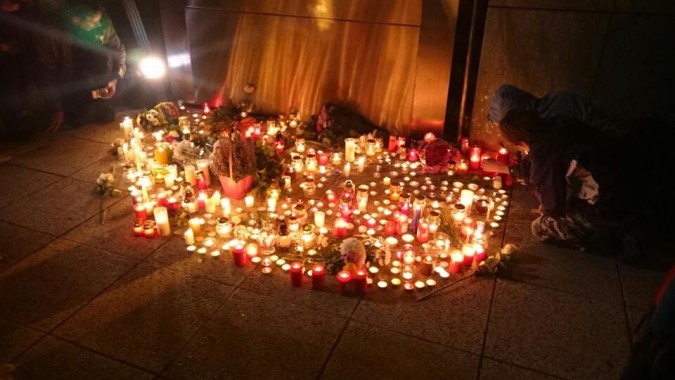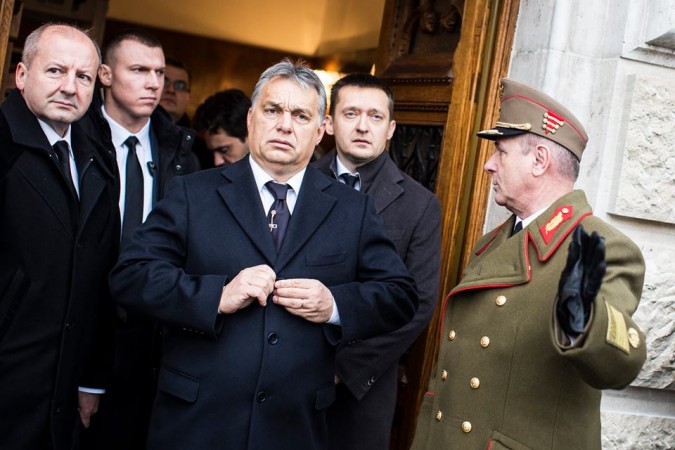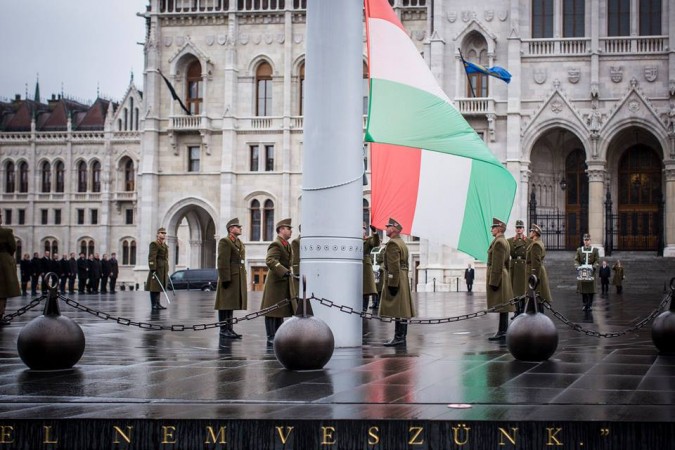Hundreds of people gathered Saturday night at the steps of the Institut français de Budapest to light votive candles in memory of the 129 people killed on November 13th, when eight terrorists launched coordinated attacks in Paris. The French Institute, overlooking the Danube, was founded by France’s Ministry of Foreign Affairs, to promote the French language and culture in Hungary, and in dozens of other countries around the world.
Éric Fournier, France’s ambassador to Budapest, addressed the participants of the memorial service, which was attended by Márta Demeter, a Member of Parliament of the Hungarian Socialist Party (MSZP), as well as by Benedek Jávor, a Member of the European Parliament affiliated with the left-centre Dialogue for Hungary (Párbeszéd Magyarországért) party.

A photo posted on Socialist MP Márta Demeter’s Facebook page from the vigil held in front of the French Institute in Budapest.
The governing Fidesz party was represented by Antal Rogán, the minister in charge of the Prime Minister’s Office, as well as by Minister of Justice and Hungary’s former ambassador to France, László Trócsányi. Prime Minister Viktor Orbán did not participate at the memorial Saturday night, but showed up Sunday morning alongside Ambassador Fournier, to lay flowers and a votive candle.
Mr. Orbán’s media team has also posted a dozen photos to the prime minister’s Facebook page of Sunday’s national day of mourning in Hungary. While the vast majority of Hungarian society feels a great deal of solidarity with France, and especially with the victims and their loved ones, some have rightly questioned the political motives behind Mr. Orbán’s declaration of a national day of mourning. According to the Hungarian Spectrum, only two countries are holding national days of mourning following the attacks in Paris: France and Hungary. In Hungary, the ceremonial guard at Parliament positioned the Hungarian flag at half mast in the presence of Prime Minister Orbán.

Viktor Orbán at Parliament on Sunday, as the flag is being positioned at half-staff, by the Hungarian ceremonial guard. Photo: Facebook.

The ceremonial guard positions Hungary’s flag at half mast in front of Parliament, on the national day of mourning. Photo: Facebook.
According to the government decree, all national and European Union flags in Hungary must be flown at half-mast on public buildings. As well, most government ministries, municipalities and schools must fly a black flag, used as a symbol of death and mourning in Hungary.
According to a CNN report, one of the suicide bombers in Paris, Ahmad al Mohammad, who detonated himself outside the Stade de France, posed as a refugee and arrived in France, most likely crossing through Hungary, along with the tens of thousands of Syrian asylum seekers. If it is, indeed, confirmed that Ahmad al Mohammad crossed the border through Hungary during the height of the refugee crisis, then Mr. Orbán and his media will undoubtedly use this to build the prime minister’s image as the “defender of Europe,” as the seasoned, responsible statesman who saw the danger on the horizon before anyone else.
And if this narrative becomes increasingly dominant in Europe, the systematic authoritarianism of the Fidesz government and its singularly crass, calculating and brutal nature will be forgotten or dismissed by many in the West.



